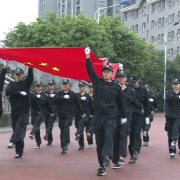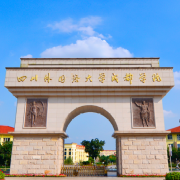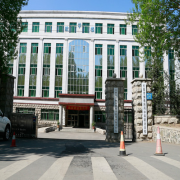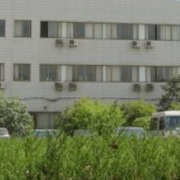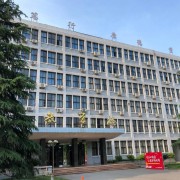leisuretime time什么意思
来源:择校网 时间:2025-01-30 11:55:41
一、leisure是什么意思
休闲。
英语在许多国际组织或者会议上都是必需语言,联合国秘书长的当选条件之一,是同时掌握英语和法语。
由于讲英语的两个主要国家——英国与美国,先后成为世界大国之故,并在商业、学术领域具较大影响力,在科技方面的突出贡献和领先地位,因此许多人都将英语做为一种外语或第二语言,把英语作为外国语使用的人约3亿—5亿。英语在欧洲大陆及日本是最普遍作为外语来学习的语言(94%),接着是法语和西班牙语,在中国等国家,英语是学校的必修外语课程。
英语作为第二语言和作为外国语这两种不同的使用法,说明英语正在愈来愈被看成一种国际交往的工具,它不再为一国或一个民族所专有,而是一种中性的信息媒介。
基本英语是为了国际交流使用而简化了的英语。它通常被一些飞机厂商和其他国际企业用作书写手册和交流。远东的一些学校把它作为基础英语来教授。
二、Old Father Time Becomes a Terror课文译文
1 Once upon a time, technology, wethought, would make our lives easier.Machines were expected to do our workfor us, leaving us with ever-increasingquantities of time to waste away onidleness and pleasure.
从前,我们以为技术发展会使我们的生活变得更安逸。那时我们觉得机器会替代我们工作,我们则有越来越多的时间休闲娱乐。
2 But instead of liberating us, technologyhas enslaved us. Innovations are occurringat a bewildering rate: as many now arrivein a year as once arrived in a millennium.And as each invention arrives, it eats further into our time.
但技术发展没有把我们解放出来,而是使我们成为奴隶。新技术纷至沓来,令人目不暇接:一-年涌现的技术创新相当于以前一千年。而每一项新发明问世,就进一步吞噬我们的光阴。
3 The motorcar, for example, promisedunimaginable levels of personal mobility.But now, traffic in cities moves more slowly than it did in the days of the horse-drawn carriage, and we waste our livesstuck in traffic jams.
比如,汽车曾使我们希望个人出行会方便得让人难以想象。可如今,城市车辆运行得比马车时代还要慢,我们因交通堵塞而困在车内,徒然浪费生命。
4 The aircraft promised new horizons,too. The trouble is, it delivered them. Itsvery existence created a demand for time-consuming journeys that we would neverpreviously have dreamed of undertaking-the transatlantic shopping expedition, forexample, or the trip to a convention on theother side of the world.飞机也曾有可能为我们拓展新天地。问题是,飞机提供了新的天地。其存在本身产生了对耗时的长途旅行的需求,这种旅行,如越洋购物,或远道前往地球的另一半参加会议,以前我们是根本无法想象
5 In most cases, technology has not savedtime, but enabled us to do more things. Inthe home, washing machines promised tofree women from having to toil over thelaundry. In reality, they encouraged us tochange our clothes daily instead of weekly,creating seven times as much washing and ironing. Similarly, the weekly bath hasbeen replaced by the daily shower,
multiplying the hours spent on personal grooming.
在大多数情况下,技术发展并未节省时间,而是使我们做更多事。在家里,洗衣机使妇女摆脱繁重的洗衣劳作。但事实上,它们促使我们每天,而不是每星期换一次衣服,这就使熨洗衣物的工作量变成原来的7倍。同样地,每周一次,的沐浴为每日一次的淋浴所代替,使得用于个人穿着打扮的时间大大增加。
6 Meanwhile, technology has not onlyallowed work to spread into our leisure
time- the laptop-on-the-beach syndrome-- but added the new burden of dealing withfaxes, e-mails and voicemails. It has alsoprovided us with the opportunity to spendhours fixing software glitches on our
personal computers or flling our headswith useless information from the Internet.
与此同时,技术发展不仅听任工作侵入我们的闲暇时间--带着便携式电脑去海滩综合症--而且添加了收发传真、电子邮件和.语音邮件这些新的负担。技术发展还向我们提供机会,在个人电脑上一连几小时处理软件故障,或把因特网上那些无用的信息塞进自己的大脑。
7 Technology apart, the Internet pointsthe way to a second reason why we feel sotime-pressed: the information explosion.
除去技术发展,因特网指出了我们为何感到时间如此紧迫的第二个原因:信息爆炸。

8 A couple of centuries ago, nearly all theworld's accumulated learning could be
contained in the heads of a few
philosophers. Today, those heads couldnot hope to accommodate more than atiny fraction of the information generatedin a single day.
几个世纪以前,人类积累的几乎所有知识都能装在若干哲人的大脑之中。如今,这些大脑休想容纳下一天中产生的新信息中的小小一部分。
9 News, facts and opinions pour in from every corner of the world. The television set offers 150 channels. There are millionsof Internet sites. Magazines, books and CD-ROMs proliferate.
各种消息、事实和见解从世界各个角落大量涌入。电视机能收到1 50个频道。因特网网址多达千百万。杂志、书籍和光盘只读存储器的数量也激增。
10"In the whole world of scholarship,there were only a handful of scientificjournals in the 1 8th century, and the publication of a book was an event," saysEdward Wilson, honorary curator in entomology at Harvard University's museum of comparative zoology."Now, I find myself subscribing to 60 or 70 journals or magazines just to keep me upwith what amounts to a minute proportionof the expanding frontiers of scholarship."“在18世纪,整个国际学术界总共只有屈指可数的几家科学刊物,出版一本书是件了不起的大事,”哈佛大学比较动物学博物馆昆虫馆名誉馆长爱德华威尔逊说。“如今,我本人就订阅了60或70种期刊杂志,以便自己跟上不断拓展的学术前沿中一个微小部分的发展动向。”
11 There is another reason for ourincreased time stress levels, t0o: risingprosperity. As ever-larger quantities ofgoods and services are produced, theyhave to be consumed. Driven on by advertising, we do our best to oblige: webuy more, travel more and play more, butwe struggle to keep up. So we suffer fromwhat Wilson calls discontent with superabundance- the confusion of endlesschoice.
我们产生日益加重的时间紧迫感还有一个原因:日渐繁荣富足。由于生产的物品与提供的服务越来越多,我们必须去消费在广告的推动下,我们努力照办:我们多多购买多多旅游多多玩儿,但得尽力坚持下去。于是我们就深受威尔逊所谓的对极大富足不满之苦一-即无休止的选择所造成的困惑。
12 Of course, not everyone is overstressed."It's a convenient shorthandto say we're all time-starved, but we haveto remember that it only applies to, say,half the population," says Michael Willmott, director of the Future Foundation,a London research company.
当然,并非人人感到时间过度紧迫。“说我们都缺少时间只是随意讲讲,我们应该记住,这种说法大约只适用于一半人,”未来基金公司--一家伦敦研究公司--的经理迈克尔威尔莫特说。
13"You've got people retiring early,you've got the unemployed, you've got involved in the economy who don't have this situation at all. If you're unemployed,your problem is that you've got too muchtime, not too little."
“有些人早早退休了,有些人失业了,有些人或许只与经济活动沾点边,根本不会有这种情况。如果失业了,那你的问题就是时间太多,而不是太少。”
14 Paul Edwards, chairman of the
London-based Henley Centre forecastinggroup, points out that the feeling of pressures can also be exaggerated, orself-imposed."Everyone talks about it somuch that about 50 percent of unemployed or retired people will tell youthey never have enough time to get thingsdone," he says."It's almost got to the pointwhere there's stress envy. If you're not
stressed, you're not succeeding. Everyone wants to have a little bit of this stress to show they're an important person."
总部设在伦敦的亨利中心预测小组组长保罗爱德华兹指出,压力感也可能被夸大,或者被强加于自身。“人人都大谈压力,以至于多达半数的失业者或退休人员都会跟你说,他们根本来不及把事情做完,”他说。“这几乎是到了羡慕压力的程度。没有感到有压力,就不是成功者。人人都想表现几分时间紧迫感,以显示自己的重要。”
15 There is another aspect to all of thistoo. Hour-by-hour logs kept by thousandsof volunteers over the decades have
shown that, in the U.K., working hours
have risen only slightly in the last 10 years,and in the U.S., they have actually fallen-even for those in professional and
executive jobs, where the perceptions ofstress are highest.
这一切还有另外一个方面。几十年来由数千名志愿者所作的钟点日志表明,英国在最近十年中工作时间只略微增加,而在美国,即使对工作压力最大的专业人士和管理人员而言,工作时间实际上减少了。
16 In the U.S., John Robinson, professorof sociology at the University of Maryland,and Geoffrey Godbey, professor of leisurestudies at Penn State University foundthat, since the mid-1960s, the averageAmerican had gained five hours a week infree time- that is, time left after working,.sleeping, commuting, caring for childrenand doing the chores.
在美国,马里兰大学社会学教授约翰:鲁宾逊和宾夕法尼亚州立大学研究闲暇问题的教授杰弗里戈德比发现,自20世纪60年代中期以来,普通美国人每周增加了5小时空.余时间,即工作、睡眠、乘车上下班、照料孩子和家务劳动之余的时间。.
17 The gains, however, were unevenlydistributed. The Deople who benefited the distributed. The people who benefited themost were singles and empty-nesters.Those who gained the least- less than anhour- were working couples with pre-
school children, perhaps reflecting thetrend for parents to spend more timenurturing their offspring.
但增加的时间分配得并不均匀。受惠最多的是未婚者和子女不在身边的人。得益最少的--增加了不足1个小时--是有学前子女的双职工夫妇,这或许反映了父母在抚养子女方面花费更多时间这---倾向。
18 There is, of course, a gender issuehere, too. Advances in household appliances may have encouraged womento take paying jobs: but as we have alreadynoted, technology did not end householdchores. As a result, we see appalling inequalities in the distribution of free timebetween the sexes. According to the Henley Centre, working fathers in the U. K.average 48 hours of free time a week.Working mothers get 14.
这里当然也存在着性别问题。家用器具的更新换代或许鼓励妇女去做有报酬的工作,但正如我们已经注意到的,技术发展并没有扫除家务杂活。其结果是,我们发现男女空余时间的分配惊人地不平等。据亨利中心的调查,在英国,有工作的父亲平均每周有48小时的空余时间。有工作的母亲只有14小时。
19 Inequalities apart, the perception ofthe time famine is widespread, and hasprovoked a variety of reactions. One is anattempt to gain the largest possible
amount of satisfaction from the smallestpossible investment of time. People todaywant fast food, sound bytes and instantgratification. And they become upset whentime is wasted.
除去不平等,缺乏时间的感觉也普遍存在,并引起了各种反应。反应之一是试图投入最少的时间以获取最大的满足。如今人们需要快餐,需要电台、电视台播放简短片断,还要即刻得到满足。时间一旦被浪费,人们就会很不高兴。
20"People talk about quality time. Theywant perfect moments," says the HenleyCentre's Edwards."If you take your kids toa movie and McDonald's and it's not
perfect, you've wasted an afternoon, andit's a sense that you' ve lost something precious. If you lose some money you canearn some more, but if you waste time you can never get it back."
“人们谈论着质量时间。他们需要最佳时光,”亨利中心的爱德华兹说。“如果你带孩子去看电影或去麦当劳,但度过的时光并不甜美,你浪费了一个下午,感觉就像是你丢失了宝贵物品。钱丢失了还能挣回来但寸间浪费了就再也无法追回。来,但时间浪费了就再也无法追回。”
21 People are also trying to buy time.Anything that helps streamline our lives isa growth market. One example is whatAmericans call concierge services-domestic help, childcare, gardening anddecorating. And on-line retailers are seeingbig increases in sales- though not, as yet,profits.
人们还试图购买时间。任何能帮助我们提高生活效率的事物都有越做越大的市场。美国人所谓的家政服务--做家务,带孩子,修剪花木,居家装饰一-即为一例。网.上零售商在看着销售额大幅增长--虽然利润尚未同样大幅增长。
22 A third reaction to time famine hasbeen the growth of the work-life debate.You hear more about people taking earlyretirement or giving up high pressure jobsin favour of occupations with shorter in favour of occupations with shorterworking hours. And bodies such as Britain's National Work-L ife Forum havesprung up, urging employers to end thelong-hours culture among managers andto adopt family-friendly working policies.
对时间匮乏的第三个反应是有关人的一生应该_工作多少年的争论增多。你比过去更常听到人们谈论早早退休,谈论放弃压力大的工作去从事工作时间短的工作。诸如英国全国工作年限论坛这样的机构像雨后春笋般出现了,敦促雇主终止让管理人员长时间加班的做法,而采取能适应家庭生活的工作方式。
23 The trouble with all these reactions isthat liberating time- whether by makingbetter use of it, buying it from others orreducing the amount spent at work- isfutile if the hours gained are immediatelydiverted to other purposes.
所有这些反应的问题在于,把时间解放出来--无论是靠更充分地利用时间,靠购买他人的时间,还是靠缩短工作时间--是没有意义的,如果赢得的时间又即刻被用于其他目的。
24 As Godbey points out, the stress wefeel arises not from a shortage of time, butfrom the surfeit of things we try to craminto it."It's the kid in the candy store," hesays."There's just so many good things todo. The array of choices is stunning. Ourfree time is increasing, but not as fast asour sense of the necessary.
正如戈德比所指出的,我们的紧张感并非源于时间短缺,而是因为我们试图在--个个时段中塞入过多的内容。“就像糖果店里的孩子,”他说,“有那么多美好的事情要做。选择之多,令人眼花缭乱。我们的空,余时间在增加,但其速度跟不上我们心中日益增多的必须做的事。”
25 A more successful remedy may lie inunderstanding the problem rather thanevading it.
更有效的解决方式或许在于去理解这--问题,而不是回避这--问题。
26 Before the in
三、leisure***time什么意思
leisure time_百度翻译
leisure time [英]ˈleʒə taim [美]ˈliʒɚ taɪm
[法]业余时间;余暇
[例句]It may increasingly apply to their leisure time too.
他们的休闲时间也要日益与其相适应。
***************************************************************
***************************************************************
请采纳
如果你认可我的回答,敬请及时采纳,
~如果你认可我的回答,请及时点击【采纳为满意回答】按钮
~~手机提问的朋友在客户端右上角评价点【满意】即可。
~你的采纳是我前进的动力
~~O(∩_∩)O,记得好评和采纳,互相帮助
************************************************************
leisuretime的介绍就聊到这里吧,感谢你花时间阅读本站内容,更多关于time什么意思、leisuretime的信息别忘了在本站进行查找哦。
